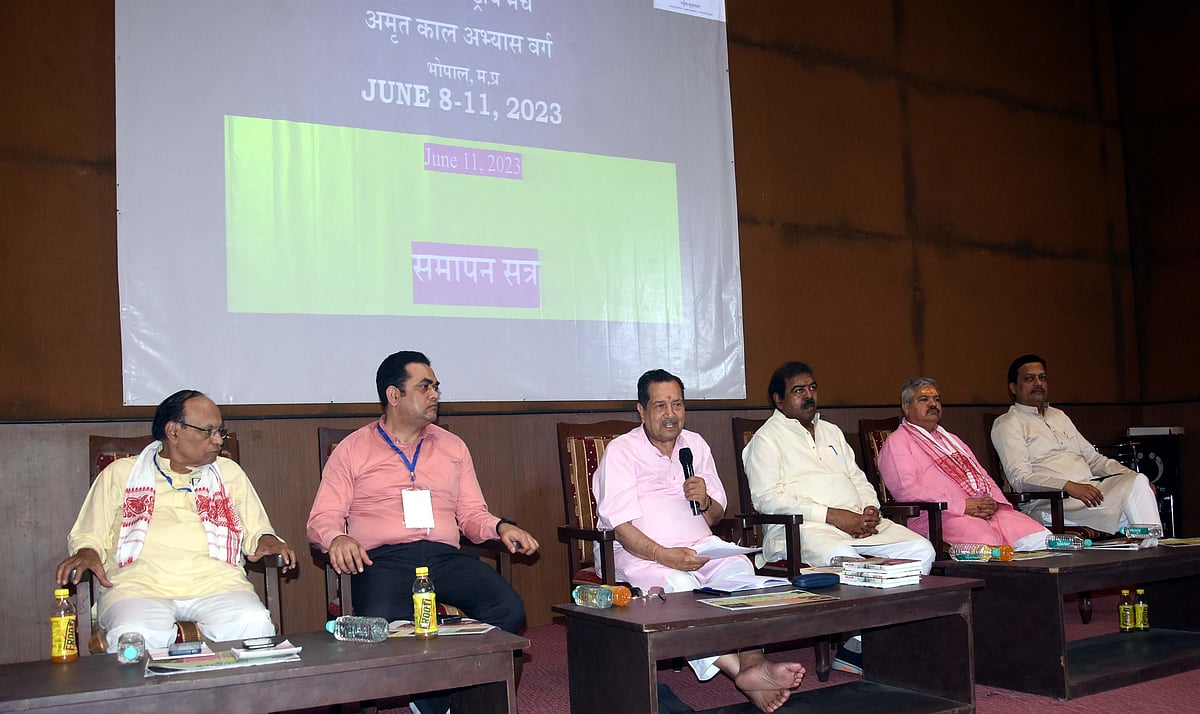Not many would have been surprised by the decision of the 22nd Law Commission of India to seek views afresh of the general public about the need to have a uniform civil code (UCC). This is because while reviving the law commission and appointing Justice Rituraj Awasthi as its chairman, the then Law Minister, Kiren Rijiju, had specifically mentioned that the government wanted its opinion on the UCC. After coming to power in 2014, the Narendra Modi government had asked the commission to look into the matter and give its expert opinion. Accordingly, the 21st law commission initiated the process of consultation by soliciting the views of the general public, especially stakeholders like religious, social and political leaders. There was a huge response to the appeal.
The chairman, Justice BS Chauhan, is quoted to have said that “the UCC is neither necessary nor desirable at this stage” and “secularism could not contradict plurality”. He even went to the extent of saying that “cultural diversity cannot be compromised to the extent that our urge for uniformity itself becomes a reason for threat to the territorial integrity of the nation”. Everyone believed that the last word on the subject had been uttered. No, the government had an alternative plan of action up its sleeves. It unveiled the plan when Justice Awasthi, who served for many years on the Bench of the Allahabad High Court, was appointed chairman of the 22nd commission. He came to public notice when, as Chief Justice of the Karnataka High Court, he ruled that hijab was not an essential practice of Islam.
His appointment raised eyebrows in legal circles as the law commission chairman was usually a retired judge of the Supreme Court or legal luminaries like MC Setalvad and KK Mathew. True, the chief justice of a high court is equivalent to a judge of the Supreme Court. The commission has not explained why it thought it necessary to solicit the views of the general public when they are already available with it. Nothing extraordinary has happened during the last few years. Obviously, the commission is in a hurry to give its recommendation to the government. There is absolutely no doubt on the government’s stand on the UCC. Among the three core promises of the BJP were construction of a temple at Ayodhya, abrogation of Article 370 of the Constitution and creation of a uniform civil code.
Government spokesmen have been claiming that the party has delivered on its two promises. The party is hopeful that by the end of this year, Modi would be able to “consecrate” the temple at Ayodhya. Forget Article 370, Jammu and Kashmir does not even exist as a state. The party would like the UCC to be enacted before it faces the electorate in 2024. It wants the law commission to support its stand. That the commission and the government seem to be on the same page is obvious from its opinion on the sedition law. It was under this law that Mahatma Gandhi was arrested. It is no longer on the statute books in Britain. The Modi government has been using it to settle scores with its critics, including writers, journalists and opinion makers. The apex court had also questioned the practice of using the archaic law to suppress dissent. The law commission, instead of advocating for the complete repeal or, at least, a redefinition of the law of sedition, has recommended for it to be retained on the statute book, with a greatly enhanced scope and punishment.
Small wonder that some even wondered whether the commission, which is independent of the government, had reduced itself to a handmaiden of those in power. The UCC is a proposed set of laws that would govern personal matters such as marriage, divorce, inheritance, and adoption for all citizens of India, regardless of their religion. The idea is to create a common set of laws that would promote gender equality and secularism. Currently, personal laws in India are based on religious laws, which vary for different religions. Of course, that has not prevented the state from asserting that when the secular law clashes with the personal law, the former would prevail. It is a sensitive issue that needs to be handled in a sensitive manner.













